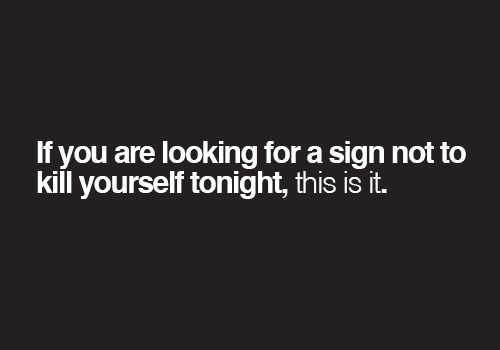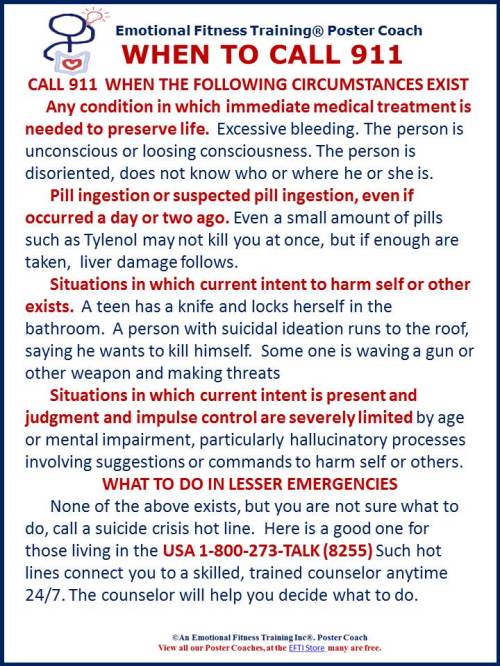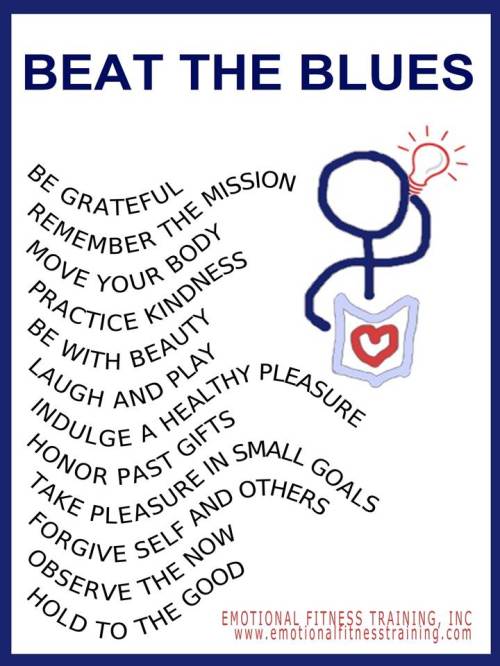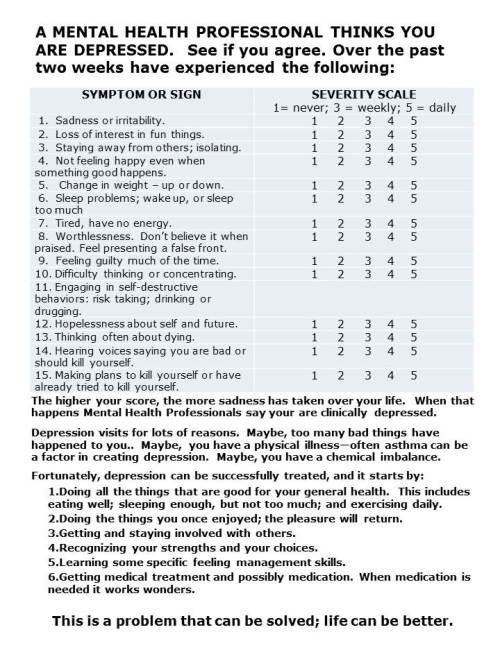Robin William’s suicide changed the post I planned, but the topic is the same. Tired of living? I often am, but I don’t know for sure what comes next.  For some, and I am guessing Robin was one, it doesn’t matter what comes next; life and pain has worn them out. Suicide seems the only option. Which is one reason I advocate assisted suicide.
For some, and I am guessing Robin was one, it doesn’t matter what comes next; life and pain has worn them out. Suicide seems the only option. Which is one reason I advocate assisted suicide.
Imagine if Robin knew he could have company at his death, hold hands with a loved one and pass on peacefully with the aid of suicide doctor by asking for help dying. That option might have kept him alive.
Then again knowing he could have had a physician at his side might not have worked. At its worse depression rants against anything but the relief of death.
Two things keep most suicidal thinkers alive. The hope things might get better and knowing others care.
As a mental health professional, I have known many who wanted to die. Those that actually committed suicide were not patients or clients of mine, but personal friends, Sad to say, I had long lost contact them.
One of those friends taught me a lesson that has helped me deal a bit better with those who do kill themselves. This friend was in a locked psychiatric ward after having been accidentally discovered trying to kill herself by putting her head in her over an d turning the gas on. Her brothe , thought to be in another town but who had the key to her apartment, unexpectedly went to her apartment. He saved her life, but only temporarily.
After three days on the closed ward, she succeeded in escaping the locks, making it to the roof and jumping to her death. Very often, those truly tired of living succeed in killing themselves one way or another.
Teen suicides always seem extra painful for me. Teens often commit suicide without fully appriaciating that death might well mean no awareness of anything.
A teen can get trapped into committing suicide by fantasizing s/he will see how others cared. They imagine watching their funneral and think that they will be around to witness it after their death. Maybe, but I am betting not.
For some teens it is expecting to enjoy a fantasied revenge by seeing the pain caused others. Tthis kind of thinking is delusional.
The saddest suicides, howeiver, as far as I am concerned, are the Plea-for-help attempts that end with the person dead instead of being saved.
EMOTIONAL FITNESS THOUGHTS AND TIPS
Personally, I want to live as long as I can talk and take some care of myself. My Living Will states very clearly to pull the plug if I cannot tell whoever is tending me to do so and there is little or no hope of change.
I do not want my death prolonged and that is the dilemma many face with the severely injured, ill, or elderly. The line between prolonging life and prolonging death is often difficult to determine.
I have thoughts lots about how to “Go peacefully in to that dark night” on my own when I feel like I just cannot go on:Vodka and pot or maybe a long walk on a snowy, snowy night.
As a mental health professional, I have also trained others on assessing and dealing with personal depression or another person’s depression. Not so easy and particularly hard when a chemical depression is involved.
Here is today’s Emotional fitness tip: Safety first and always.
Personally reaching the end of your rope and planning your death? Get professional help and now. Call a hot line, go to the nearest emergency room. The life you save will be your own and because things do change you might find yourself living a better life than you ever imagined possible in days to come.
Worried about someone else’s depression and suicidal threats. Take all threats seriously. Use this EFTI poster coach to guide you as to the need for immediate action and what to do when you are worried, but an emergency does not exist.
Life is hard and what makes it hardest for some, is the struggle seems never ending. If you know a mixture of pain and pleasure be grateful. If the painful times predominate, consider a chemical depression is operating.
Drink and drugs seem to make life a bit more bearable and reach the point when you need them to function even marginally well. That is another sign a chemical depression might be operating.
There is also a type of suicide that comes when one “Has it all.” Being told you have every thing you need to be happy but still struggling iwth blackness intensifies the despair and the loneliness and increases the risk of suicide. Robin had this extra burden to carry along with his chemical depression.
Finally, some are good at hiding their depression. We had several foster children who seemed to ooze depression. One committed suicide long after leaving our care. I was not surprised. However, when another of our foster children made an attempt and we were discussing it with the others then in our care, one said, “You mean it’s not normal to be unhappy all the time and think about killing yourself every day.”
Scared me because he was one of the ones who always seemed face. After his comment, I had him take the Beck Depression Inventory. His score indicated major depression. Until I showed the test results to his probation officer none of us suspected how depressed he was. The link takes you to a self-help version of the inventory.
STAY STRONG
We all have our struggles. If they do not include dealing with suicidal depression understanding the blackness others live with becomes a barrier. Such barriers are common place for we walk only in our own shoes and that is the Curse of Personal Knowledge.
What to do when you don’t understand another’s pain or find yourself irked by another’s complaints? Practice kindness. You will help yourself as well as the other person. If you like this post share it with another. That is practicing deliberate kindness and deliverate kindness strengthens more than the also helpful random acts. .
As always, thank you for your support.
Katherine
This post fits in with Today’s Word Press’s DAILY PROMPT: A Bookish Choice A literary-minded witch gives you a choice: with a flick of the wand, you can become either an obscure novelist whose work will be admired and studied by a select few for decades, or a popular paperback author whose books give pleasure to millions. Which do you choose? Fame and fortune offer little protection against suicide as Robin Williams’ sad death demonstrates. I’d love some fame and a bit more money, but …..
LINKS OF INTEREST
- A tribute to Robin Williams (aish.com)
- Suicidal risks (suicidepreventionlifeline.org)
- Emotional Intelligence (en.wikipedia.org)
- Personal Knowledge versus Deep Thinking (projectlearnet.org)
- The EFTI Store (eftistore.com)
- WordPress Daily Prompt (wordpress.com)




